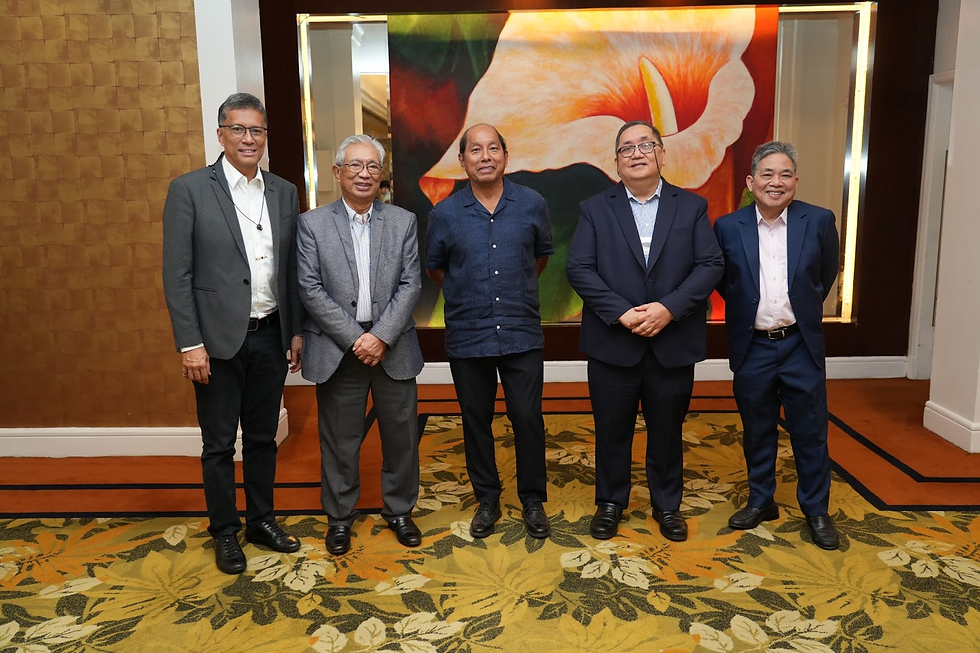TOBACCO TAX: GOOD FOR THE TOBACCO FARMERS, TOO
- Action for Economic Reforms
- Jan 25, 2019
- 3 min read
YELLOW PAD
By Arjay Mercado
A focus group discussion (FGD) with 23 farmer leaders from Candon and Cabigao, Ilocos Sur last Dec. 17, 2018 should be of interest to the politicians who are now deliberating the passage of the tobacco tax.
In that FGD conducted by Action for Economic Reforms (AER) and Social Watch Philippines (SWP), the respondents revealed that allocations from the incremental revenue collections of Republic Act 10351 (RA 10351), also known as the Sin Tax Law of 2012, were utilized on programs that directly contributed to support the farmers in the tobacco-growing province.
RA 10351 mandates that based on a complicated formula, about 15% of the incremental revenues from the additional tobacco excise taxes will go directly to tobacco-producing provinces to finance programs that will provide support for tobacco farmers and workers. This can be in the form of inputs, trainings, safety nets, infrastructure, livelihood, and agri-industrial projects.
According to the respondents in the FGD, the direct impact of the additional revenues from Sin Tax was felt in a major way when it comes to additional equipment and inputs provided by the local government units (LGUs) to the tobacco farmer groups. They said that this form of government support greatly reduced their cost of production. They also gave credit to the new farm-to-market roads funded by the tobacco tax, which provided an easier way for them to transport their produce.
Since the passage of RA 10351, the allocated funds for tobacco-growing regions (for both barley and Virginia tobacco producers) almost doubled from P5.6 billion allocated for 2014 to P10.7 billion allocated for 2015. For 2018, the allocated funds reached P15.813 billion. Contrary to arguments of some lawmakers (e.g. Representative Miro Quimbo) that additional taxes kill the livelihood of farmers, the taxes have actually financed programs that support the tobacco farmers.
The feedback from the FGD is also consistent with the data obtained by AER from the Department of Budget and Management. Through the Freedom of Information (FOI) portal, AER was able to retrieve data on submissions of LGUs on proposed programs that they would like to be financed using the sin tax revenues. From the data that AER collated, most of the proposed programs are directed towards construction of farm-to-market roads, purchase of inputs and equipment, and irrigation programs.
However, the farmers raised a concern that more funds from the tobacco tax revenues should be utilized for additional financial support in the form of cash subsidies or loans. They mentioned that the initial capital in farming is still a major problem. They also mentioned the need to improve health care and education programs for their families.
This new information from the FGD provides another reason why supporting tobacco tax increases shouldn’t worry politicians, especially those gunning for Senate seats this 2019 such as Senator Sonny Angara, who heads the Senate Committee on Ways and Means that is tasked with conducting committee hearings on tobacco taxation.
It can be remembered that Senator Frank Drilon, the principal author of the Sin Tax Law, ranked second in the senatorial race in 2013 even after the tax was passed into law in 2012. Senator Drilon takes pride in winning heavily in tobacco-growing provinces. The bipartisan support for the passage of the tobacco tax, as well as the certification of its urgency, should make it a lot easier for the politicians, including the reelectionists, to pass the bill.
In the proposed Senate Bill 1605 of Senator JV Ejercito, which mandates a tobacco excise tax increase to P90 per pack of cigarettes, health advocates estimate P87.31 billion in incremental revenues. Of that amount, about 15% will be used as additional funding for the farmers and others in tobacco-growing areas. The bulk or the remaining 85% will be used for the implementation of the Universal Health Care (UHC) Law, which will benefit all Filipinos.
It makes us wonder then why some politicians are afraid of passing increased tobacco taxation. It is good for the health of the entire Filipino people. It increases revenues that will be used for universal health care and for the welfare of tobacco farmers and workers.
Hence it will mean support of the people to politicians who will champion the tobacco tax. For the reelectionists, it means votes. This is not a mere opinion; it is validated by a recent Pulse Asia survey that two out of three Filipinos support higher tobacco taxes and will support politicians who will champion tobacco taxation.
To Senator Angara and his colleagues in the Senate, take heed.
Arjay Mercado is a fiscal policy analyst and researcher of Action for Economic Reforms.



